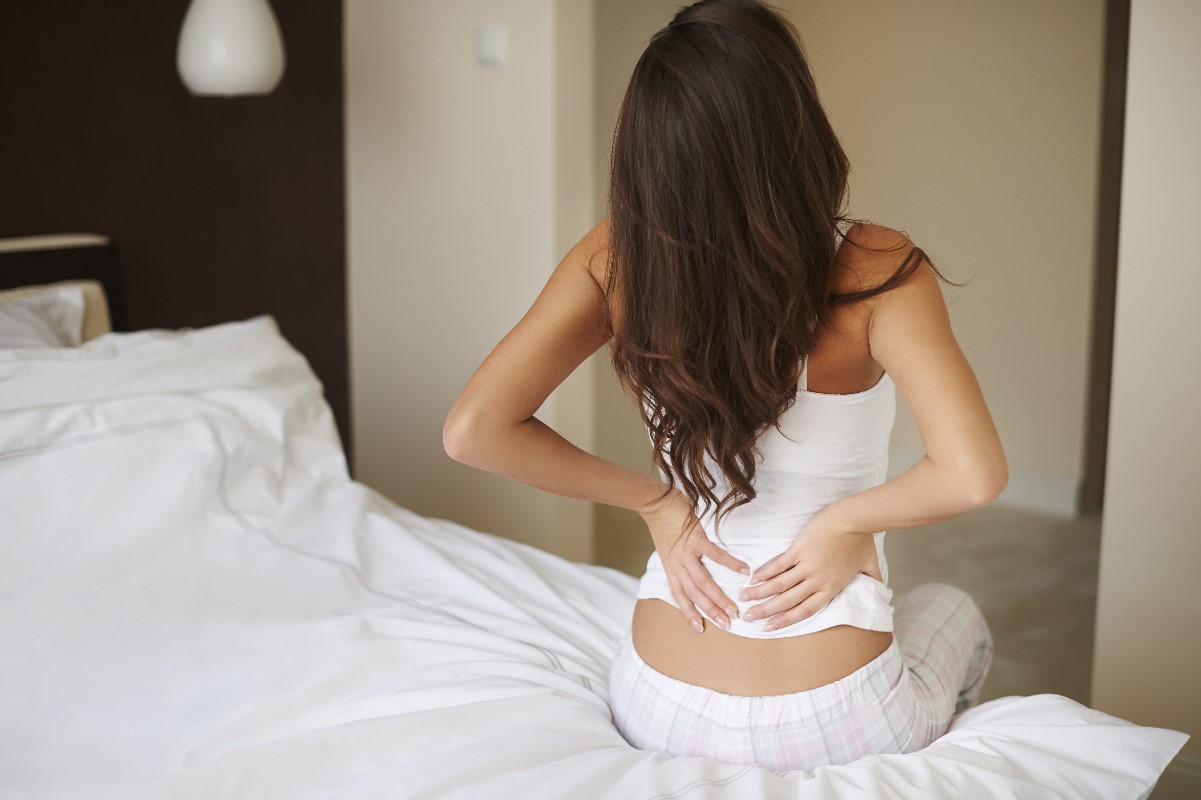
We often do not realize how much we strain our spinal column every day. On top of that, we live a sedentary or standing lifestyle without any physical activity. Here are some proven ways to relieve back pain.
The most common causes of back pain are various degenerative conditions, osteoporosis, disc prolapse, sciatica, discopathy, strain, but also low physical activity and improper prolonged sitting or standing, especially standing still for too long.
Pain can also occur through improper sleeping position, poor posture and wearing high-heeled shoes. It may also be a symptom of traumatic conditions or spinal defects.
It is very important to diagnose the correct cause of back pain. Pain persisting for more than 2 weeks or sudden, strong pain that prevents movement should alarm us. Then it is undoubtedly necessary to visit a doctor.
Sometimes it happens that the only weapon in the fight against back pain are visits to a physiotherapist (who will not only apply appropriate techniques and massage, but also advise on what exercises to do and what to do to prevent pain) or even surgery.
You can also buy over-the-counter anti-inflammatory drugs at the pharmacy, but you have to be careful when using them, because in the long run they can be dangerous to your health.
In other cases, home remedies are helpful, which can be easily implemented by each of us. Change of habits can be very helpful.
Moderate physical activity positively influences our whole body – it oxygenates it, strengthens immunity, and also helps to stay healthy, including a positive influence on muscles and joints . Walking and gymnastics as well as swimming are recommended.
It is also worth introducing elements of strengthening and stretching exercises into your routine, especially if you work a lot in a sitting position.
In addition, it is important not to strain yourself and avoid body movements that only increase pain. Lifting weights will not help either. Pay attention to your posture when lifting anything – do not bend deeply, but bend your knees (the best example here are small children, who do it perfectly).
You also need to remember about maintaining the right body posture – avoid hunching, contractures, prolonged sitting, carrying a heavy bag on one shoulder.
Cold compresses (made of ice cubes) are useful especially in acute muscle strain, bumps, sprains or falls (reduce internal bleeding in the area, shrink the vessels), and usually it is the warm compresses that bring the greatest relief, soothe pain and relax tension.
Poultices (for example in the form of warming patches available at the pharmacy) can be replaced by a long, relaxing bath, with the addition of essential oils and bath salts.
During sleep we have time to regenerate and rest after a long day. It is also a period when our body can relax.
However, it is important to maintain an appropriate position, without lying too high on the pillows or sinking into a mattress that is too soft.
>> See also: These drinks will strengthen your immunity and… well-being
It’s also a good idea to get as many hours of sleep as possible simply by lying on your back. In the morning, don’t get up abruptly but stretch in bed (bend your knees, keep your feet together and move from side to side without taking your arms off the mattress) and get up slowly, rolling onto your side first.
A well-balanced diet is still important. The spine will be strengthened if we eat foods rich in vitamins (especially vitamin D3 and B6), minerals (calcium, potassium, magnesium) and proteins.
Pain may also subside after losing excess weight.